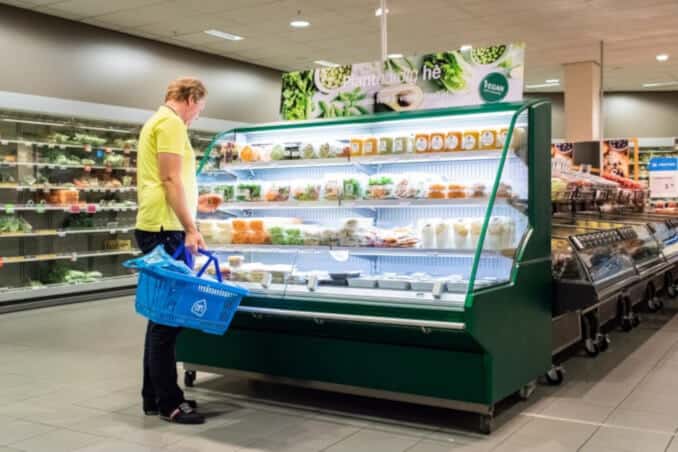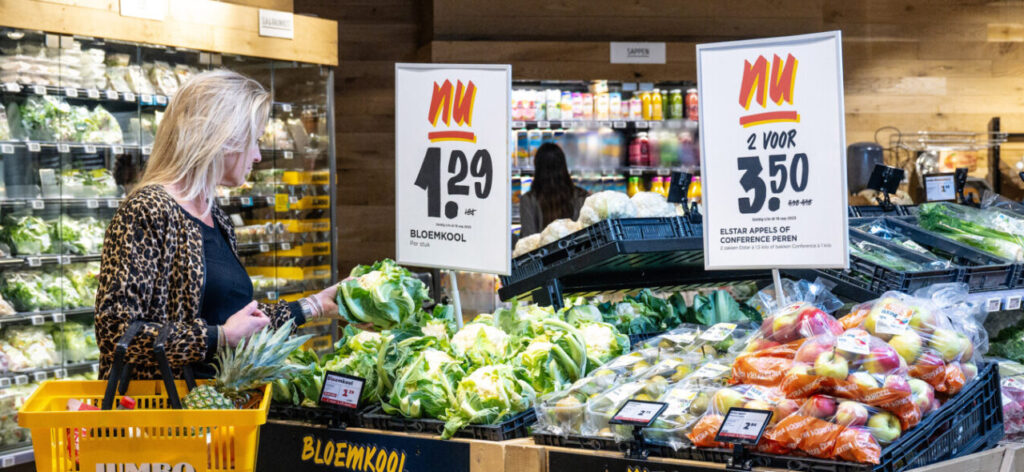Data from the Protein Monitor 2024, an annual study conducted by Wageningen Social & Economic Research on behalf of the Dutch Ministry of Agriculture, Fisheries, Food Security and Nature, has assessed the progress of the protein transition at Dutch supermarkets.
The research indicates that availability is increasing rapidly; in 2024, 38% of online supermarket ranges consisted of plant-based protein products, compared to just 32% in 2023. However, the amount of plant-based protein consumed by the Dutch population has increased by just 1%.
Currently, 60% of consumers’ protein intake comes from animal sources, while 40% comes from plants. The Netherlands has set a policy goal of achieving 50% plant-based and 50% animal protein intake by 2030 to improve public health and sustainability.
“Although the protein transition is progressing slowly, the growth in plant-based options shows that supermarkets are preparing for a future in which plant-based proteins play an increasingly important role,” said lead researcher Marleen Onwezen. “However, more is needed to get consumers to change along with them.”

The influence of environment
Plant-based protein products are reportedly becoming more affordable; on average, they are now 27% cheaper than their animal-based counterparts, whereas in 2023 they were only 17% cheaper. However, the cheapest option in supermarkets is still often an animal-based product.
Furthermore, animal products receive more marketing than plant-based products and score much higher in terms of familiarity, habits, and cooking skills. Dinner, dining out, and social occasions all remain focused on animal protein.
However, the 50:50 target has almost been achieved in workplaces, since people reportedly eat more plant-based meals with their colleagues. The researchers note that this demonstrates the influence of environment on dietary choices.
According to the report, men consume more animal protein than women overall, but the ratio between plant-based and animal proteins does not differ significantly between the two groups.

Encouraging plant-based consumption
Consumers were found to be more open to consuming legumes, nuts, and seeds than more processed meat and dairy alternatives. They were also inclined to prefer changes that allow them to continue consuming some animal products; for example, around 40% said they consciously eat smaller portions of animal foods.
The researchers suggest that plant-based consumption could be encouraged at supermarkets by offering more variety, more promotions, and a wider range of plant-based protein products. Pricing strategies, such as subsidies on plant-based proteins or fewer discounts on animal products, could also help.
Most major Dutch supermarkets have committed to selling 60% plant-based proteins by 2030, and sales of animal meat appear to be declining. The recent Protein Transition Benchmark by the think tank Questionmark found that Dutch retailers are actively working on the protein transition, but faster progress is needed.
“Supermarkets play a key role in the protein transition,” said Onwezen. “We see a clear growth in the range of plant-based proteins, but consumption is only increasing very cautiously. This means that more is needed than just a larger supply: the current norm is still animal-based, and additional steps are required in the food environment and in motivating consumers to change their eating habits.”




